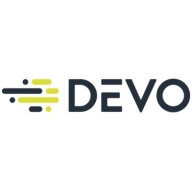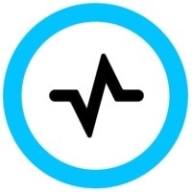

Graylog Enterprise and Devo compete in the log management and analysis category. Devo seems to have the upper hand with its advanced feature set and broader analytics capabilities, appealing to businesses seeking deep data insights.
Features: Graylog Enterprise is known for its scalable architecture, efficient real-time search capabilities, and comprehensive user management. Devo offers sophisticated analytics, seamless integration with diverse data sources, and an intuitive user interface with visually appealing Activeboards.
Room for Improvement: Graylog could enhance its analytics capabilities and streamline its cloud-based deployment options. Devo might improve its cost structure for initial setup and further simplify integration with third-party applications.
Ease of Deployment and Customer Service: Graylog Enterprise provides a straightforward on-premises deployment, prioritizing in-house control with robust support. Meanwhile, Devo's cloud-based model ensures faster setup, easier scalability, and quicker updates, with an emphasis on continuous customer service.
Pricing and ROI: Graylog Enterprise offers a lower initial setup cost, making it attractive to cost-effective solutions seekers with strong ROI potential. Devo, although pricier, provides compelling ROI through its comprehensive features and analytics depth, offering long-term value to businesses needing advanced data insights.
| Product | Market Share (%) |
|---|---|
| Graylog Enterprise | 6.0% |
| Devo | 0.7% |
| Other | 93.3% |


| Company Size | Count |
|---|---|
| Small Business | 8 |
| Midsize Enterprise | 4 |
| Large Enterprise | 11 |
| Company Size | Count |
|---|---|
| Small Business | 8 |
| Midsize Enterprise | 4 |
| Large Enterprise | 7 |
Devo is the only cloud-native logging and security analytics platform that releases the full potential of all your data to empower bold, confident action when it matters most. Only the Devo platform delivers the powerful combination of real-time visibility, high-performance analytics, scalability, multitenancy, and low TCO crucial for monitoring and securing business operations as enterprises accelerate their shift to the cloud.
Graylog Enterprise, recognized for log collection, real-time search, and enriched data handling, offers an open-source framework that integrates seamlessly with Elasticsearch. Its user-centric interface streamlines data correlation and log aggregation, supporting both backend services and comprehensive monitoring needs.
Graylog Enterprise stands out for its stability and powerful log management capabilities, facilitating efficient log aggregation, real-time updates, and data analytics. Users benefit from its plugin-based alerting, user-friendly interface, and support for microservices, including Docker integration. The ability to search in detail, flexible API integration, and data enrichment features are highly valued. Challenges include collector application issues, desired visualization enhancements, and authentication integration improvements. Users seek advancements in UI customization, backup functions, and easier rule creation.
What are Graylog Enterprise's most important features?In industrial use, Graylog Enterprise is crucial for audit trailing in financial sectors, facilitating security event identification and error monitoring. Backend teams leverage real-time analytics for swift issue resolution, while developers appreciate the comprehensive log visualization enabled by Docker integration for microservice management.
We monitor all Log Management reviews to prevent fraudulent reviews and keep review quality high. We do not post reviews by company employees or direct competitors. We validate each review for authenticity via cross-reference with LinkedIn, and personal follow-up with the reviewer when necessary.